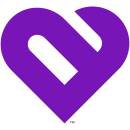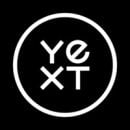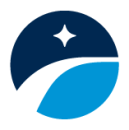On Eliza Koster’s first day at People Inc., her supervisors gave her the usual training manuals and orientation materials. They also set her up with “a plethora” of one-on-one meetings, designed to integrate her not only into the office’s workflow but also in the web of relationships. A welcome lunch that first day underscored the warmth and welcome.
“I felt a very warm and confident energy beginning my position at DDM and am very grateful for their diligent onboarding process,” Koster said.
Most companies know that a strong orientation for employees starting in a new role is important. But employees themselves emphasize connection and relationship as equally vital to success. Built In asked seven early-career employees to share their take on how to find success from the start.
Featured companies
Artera delivers a platform-level patient communications solution that integrates across a health system’s tech stack.
When you first started at your current company, how did the onboarding process set you up for success in your role?
Prior to Artera, I was working as a Clinical Dietitian in the NICU and PICU, so when I started my sales career, I didn’t know what I didn’t know. Artera’s onboarding process was instrumental in my success.
The comprehensive orientation sessions provided a solid foundation and understanding of the company's mission and values, the healthcare industry and, of course, sales. Arguably even more important than the onboarding process, though, were my colleagues, peers and mentors. These teammates took time out of their day to guide me through the initial learning curve, offer detailed real-life insights and provide invaluable tips for navigating the sales process.
Overall, the onboarding process at Artera equipped me with the knowledge, resources and support needed to seamlessly transition from my role in healthcare to sales, allowing me to contribute effectively to the mission of Artera.
What goals did you have for growth when you joined the company? How did structures, managers or opportunities support you in reaching those goals? Did you encounter any challenges or barriers on the way and if so, how did you overcome them?
As previously mentioned, I had limited experience in sales when I joined Artera. When I first started, my goals were pretty simple: learn the basics, enhance my skills and truly help make a difference in healthcare.
As I learned the ropes, I soon recognized that I wanted to be an individual contributor as an account executive. With a supportive team, great mentors and regular check-ins with my manager, I was able to quickly make this a reality.
While I started out as a sales development representative, I moved up to Enterprise SDR and team lead within just ten months, and now, thanks to one of my wonderful mentors who took a chance on me, I’ve stepped into an account executive role.
The journey did not come without challenges. Being new to sales and working for a quick-paced startup tested my limits, but I overcame them by working hard, always asking questions and leaning on my colleagues and leadership as needed.
Overall, the combination of support, mentorship, and challenging opportunities at the company significantly contributed to my professional and personal growth.
What advice do you have for early career employees beginning new roles? What do you wish you had known when you started your job?
My advice for early career employees is to embrace a learning mindset. Actively engage with colleagues, ask questions and leverage the experience around you.
Establishing strong connections not only aids in professional development but also fosters a collaborative work environment. Be open to new challenges, take initiative and continuously seek growth opportunities.
“Be open to new challenges, take initiative and continuously seek growth opportunities.”
Above all, make sure to believe in yourself and the process. When I first started at Artera, I wished I had more confidence in myself and trusted that my hard work, dedication and past experiences would pave the way for my success. With those in mind, you can do just about anything.
Gradient AI is a provider of Artificial Intelligence and Machine Learning based solutions designed specifically for the insurance industry.
When you first started at your current company, how did the onboarding process set you up for success in your role?
On my first day, I met with everyone I’d be collaborating with in my role. This laid the foundation for developing meaningful relationships with my coworkers and clarified who to approach for specific questions. I was assigned a mentor buddy who was an invaluable go-to person for insights into the team’s dynamics.
Within my first week, my manager and I crafted a personalized roadmap that outlined 30, 60 and 90-day goals. While these milestones were flexible, they provided a helpful framework for me to understand expectations and gauge my progress.
I really enjoyed my first few bite-sized tasks that took me a bit out of my comfort zone while offering a deep dive into our tech stack and product. This hands-on experience allowed me to quickly discern my role within the team and identify the meaningful ways I could contribute.
I also appreciated that each team composed a set of concise and well-structured materials covering the business value related to the work I would be doing. This additional context helped orient me in a domain that was new to me and allowed me to contribute more rapidly than if I had to figure this content out on my own.
What goals did you have for growth when you joined the company? How did structures, managers or opportunities support you in reaching those goals? Did you encounter any challenges or barriers on the way and if so, how did you overcome them?
When I joined the team, I was interested in broadening both the breadth and depth of my professional experiences, including taking on more responsibilities.
My manager has played a crucial role in supporting these goals. We regularly discuss my career aspirations, feedback and areas I’m eager to explore further.
These ongoing conversations have proven essential, as they have allowed me to not only strategically align my desired skill development with the tasks I take on but also to actively translate the advice from these discussions into concrete actions. This proactive approach played a pivotal role in my recent promotion to senior data engineer.
At Gradient AI, the ethos of learning and growth is deeply embedded in team operations. Specifically, our supportive environment is one in which team members feel comfortable asking questions and through the cross-team knowledge sharing sessions, allowing us to learn from one another.
Something I’ve appreciated here is the culture of making waves. Not only is finding ways to improve a process and innovate encouraged, but it has given me the opportunity to take on more responsibility and expand beyond my comfort zone.
What advice do you have for early career employees beginning new roles? What do you wish you had known when you started your job?
One of the most important parts of the interview process is evaluating your potential manager and company leadership. These are the people who will not only define the culture of the team but will also be responsible for guiding your progress and evaluating your performance.
Make sure your values match theirs and that they express an interest in aligning your goals with the company’s goals. Once you find the perfect fit, I would recommend keeping several things in mind when starting a new role.
Cultivating strong relationships is key for professional growth and support in your current role.
Clarify your role, responsibilities and performance expectations.
When faced with challenges or roadblocks, go beyond merely seeking help: articulate the steps you’ve taken and the progress you've made. This not only aids your own understanding but also contributes to the team’s success.
“When faced with challenges or roadblocks, go beyond merely seeking help: articulate the steps you’ve taken and the progress you've made.”
Be confident in your abilities. Each of us brings a unique skill set and perspective.
Don’t be afraid to take on additional responsibilities or propose new ideas. Show that you are proactive and committed to your work.
Be flexible and adaptable (within reason).
And always stay curious.
Yext is a Digital Knowledge Management platform designed to give companies control over their brand experiences across the digital universe of maps, apps, search engines, voice assistants and other intelligent services that drive consumer discovery, decision and action.
When you first started at your current company, how did the onboarding process set you up for success in your role?
In addition to a robust and immersive Yext orientation beginning on Day 1, each business unit at Yext has a tailored onboarding approach to acclimate new hires to their roles and expectations.
In my case, I got to shadow other creatives in real-time and engage with project managers and engineers on live projects that would have a real impact. I remember flying through the learning material and onboarding exercises because I was excited to start contributing.
Within my first month, I became more acquainted with the company’s values and joined ERGs, which I am still a part of today. These groups have helped me establish meaningful relationships across the company that might not have otherwise been possible.
What goals did you have for growth when you joined the company? How did structures, managers or opportunities support you in reaching those goals? Did you encounter any challenges or barriers on the way and if so, how did you overcome them?
Coming from a non-traditional design background and lacking familiarity with the tech space, I was eager to dive in and absorb as much knowledge as possible. I leveraged Yext’s internal mobility program, Upward, to my advantage and transitioned within a few different teams to get a sense of what I enjoyed doing versus what I wasn’t as crazy about.
This level of flexibility and direct investment in internal career growth isn’t common at every company, so I am incredibly grateful that I could stay at Yext while dipping my toes in different waters.
Yext places a high value on identifying and recruiting talented individuals, and any time I felt the urge to explore new opportunities within the company, my managers and coworkers were consistently supportive and encouraging. I owe being here five years to them, having tried different roles and teams before returning to design, where I feel most at home.
There were plenty of learning curves and bumps along the road, but having that sense of community and networking at Yext made all the transitions seamless and easy.
What advice do you have for early career employees beginning new roles? What do you wish you had known when you started your job?
Don’t be afraid to explore opportunities that may challenge or even intimidate you at first. There will always be an ebb and flow of imposter syndrome, especially among young professionals, but don’t let it hinder your ambitions.
“Don’t be afraid to explore opportunities that may challenge or even intimidate you at first.”
If there’s a role you’re interested in or an idea you want to pursue, let curiosity and passion be the driving forces. Explore other circles within your company, like Employee Resource Groups, to connect with colleagues in different functions you’re interested in.
Networking and cultivating relationships can have a huge impact, whether through casual conversations by the water cooler or asking about a recently open opportunity outside of your day-to-day team.
People Inc. is America’s largest digital and print publisher.
When you first started at your current company, how did the onboarding process set you up for success in your role?
When I first started working at DDM, I was set up with a plethora of contacts and IT courses to get me started and comfortable working on all the company’s platforms. I was given an open space to learn and ask any questions to set me up for success upon beginning my career at DDM.
I was also set up with a plethora of one-on-one meetings to begin building relationships and get to know my colleagues. This was extremely useful in aiding my understanding of who to go to for what issues or questions I faced and putting a personal relationship to the names I would be contacting consistently.
Lastly, I was taken on a welcome lunch with my team on the first day of my arrival, creating a welcoming space to be excited to join. I felt a very warm and confident energy beginning my position at DDM and am very grateful for their diligent onboarding process.
What goals did you have for growth when you joined the company? How did structures, managers or opportunities support you in reaching those goals? Did you encounter any challenges or barriers on the way and if so, how did you overcome them?
I always look toward growth when beginning a job. Since this is my first corporate position post-college, I paid a lot of attention to the roles around me searching for a good future plan. Being in an assistant position, I was able to do this easily through my constant contact and work with different members of our DDM community.
I found it very welcoming that I was consistently asked by not only my colleagues but also upper management what my future goals are and given possible paths as to how to get there. It was very obvious to me from the start that I had a team behind me that wanted to help aid my growth within the company by giving me direct contacts to my passions and their willingness to share kind words about me.
Within my role, I have constantly been given the opportunity to step up and take on more responsibility showcasing myself as an individual and a hard worker. I am very grateful for the path my managers have allowed me to lead within my first six months at DDM.
I feel like I have really been able to showcase my talents and make an impact. They never fail to let me know how vital I am to their team and ensure I feel encouraged to continue my growth.
What advice do you have for early career employees beginning new roles? What do you wish you had known when you started your job?
My greatest piece of advice for early career employees is to network as much as possible. It is so important to get to know and build relationships around you in order to understand more not only about the company but yourself, as well.
If it weren't for stepping out of my comfort zone and making the effort to meet others, I would not have such a clear path of what I want to do, or even who to go to when I reach obstacles within my day to day work.
Building a support system will build confidence and success in your career. Grab coffee with someone you're impressed by. Stop to talk to the person walking down the hallway whose career interests you. There are endless paths you can take in life and endless people to learn from about how they got to where they are (and who can possibly help you in the future).
“Grab coffee with someone you’re impressed by. Stop to talk to the person walking down the hallway whose career interests you.”
Take all the opportunities you can and always take that extra step even if it is outside of your comfort zone. The more experiences you give yourself, the more opportunities you will have for growth.
VideoAmp enables advertisers to optimize their entire portfolio of linear TV, OTT and digital video to outcomes.
When you first started at your current company, how did the onboarding process set you up for success in your role?
The onboarding process at VideoAmp played a pivotal role in shaping my success and enabling quick impact as a data scientist in my initial individual contributor role. From the outset, small non-critical-path projects exposed me to the tools, methodologies and data, which gave me a great introduction to the contextual problems we were working to solve as a scrappy start up in the adtech industry.
Despite the onboarding projects being relatively self-led, engaging mentorship and collaboration from both my manager and other seasoned team members helped guide my work such that it would ultimately lead to useful insights and solution strategies for other (more critical-path) work underway on our team.
In addition, the emphasis on continuous learning and skill development within our data science team created an environment conducive to staying abreast of new research in machine learning as well as developments in the adtech industry.
Overall, the onboarding experience was instrumental in equipping me with the necessary skills and confidence to navigate the complex landscape of adtech as a data scientist at VideoAmp.
What goals did you have for growth when you joined the company? How did structures, managers or opportunities support you in reaching those goals? Did you encounter any challenges or barriers on the way and if so, how did you overcome them?
VideoAmp was my first job outside of academia. Naturally, my immediate goal was to figure out how to navigate the transition from an atomic physicist working on experimental research to a data scientist developing products to solve business problems in the adtech space.
The first two challenges I encountered were adopting the technical skill set necessary to be an effective data scientist and learning the ropes of the adtech industry. I overcame the first challenge with the help of onboarding projects I mentioned previously.
I overcame the second challenge with the help of my manager and the community and teamwork I found at VideoAmp. During regular one-on-ones, my manager would gauge my progress, offer advice and point me in the direction of someone who could offer even more help.
By developing relationships early at VideoAmp, I was able to form a strong support network which I continue to rely upon today to accomplish complex, cross-functional goals.
What advice do you have for early career employees beginning new roles? What do you wish you had known when you started your job?
For new data scientists in business-related roles (especially within adtech), embracing curiosity and asking questions, even those that may seem “dumb,” is essential for growth. In a rapidly evolving field like adtech, clarity is crucial.
Don’t hesitate to seek clarification or more background on concepts and processes that may seem overly complicated, unrelated to your focus or even blatantly obvious. Assembling a solid foundation early on, especially if it means asking basic questions, will not only enhance your understanding but will also demonstrate your commitment to grasping the intricacies of the industry.
“Don’t hesitate to seek clarification or more background on concepts and processes that may seem overly complicated, unrelated to your focus or even blatantly obvious.”
Remember, everyone starts somewhere, and a culture that encourages inquiry fosters an environment where innovation thrives.
Unchained is a bitcoin financial services company that helps people secure, manage, and grow their bitcoin wealth.
When you first started at your current company, how did the onboarding process set you up for success in your role?
The company culture at Unchained is one of an inspired group of individuals working as hard as possible to bring bitcoin to everyone. That sort of passion is contagious, and we know how important the role each of us plays to make our mission a success. When I was brought on, there was no shortage of folks jumping in to help get me moving quickly.
What goals did you have for growth when you joined the company? How did structures, managers or opportunities support you in reaching those goals? Did you encounter any challenges or barriers on the way and if so, how did you overcome them?
When first interviewing with Unchained, I didn’t have all of the desired experiences and skills on paper, but my team lead manager believed me when I told him my full intentions were to learn and grow as much as I could at Unchained.
I had the passion part down, and the rest was achievable. One great thing the engineering team does is semi-monthly hackathons where we get a whole day to collaborate in small teams and work on things we don't typically get time to focus on in our regular work.
This gives me a unique opportunity to do some no-risk experimentation with a project that helps me grow. And this work is done with some of the best engineers in the industry, so it’s an incredibly valuable experience just to see how they operate.
What advice do you have for early career employees beginning new roles? What do you wish you had known when you started your job?
Don’t force a shoe that doesn’t fit. People may feel boxed in by their degrees, previous experience, or certifications. My recommendation is to find an interest so captivating that you have a constant desire to understand all aspects of it, then carry that passion into every interview with a company whose values you align with.
“My recommendation is to find an interest so captivating that you have a constant desire to understand all aspects of it.”
Prove to them that you will love your job. It’s such a rare and desirable trait in early career employees. It's an unstoppable combination that yields real, daily fruitful interactions and rich growth. I took a chance on Unchained, they took a chance on me, and I am excited to see where this relationship goes.
Alma is a co-practicing community of top quality therapists, coaches, and wellness professionals.
When you first started at your current company, how did the onboarding process set you up for success in your role?
When I started at Alma, the onboarding process set me up for success in my role because it was personable. My manager conducted weekly one-on-ones, was responsive to messages and provided support in areas I lacked such as insurance knowledge.
Being able to come to my meetings with questions and then reviewing them helped me retain the information that I was learning. Shadow sessions were immensely helpful for me and also helped to build my confidence.
One of the main things I liked about onboarding was that there was always room to discuss the growth path even though I had just begun in my role.
What goals did you have for growth when you joined the company? How did structures, managers or opportunities support you in reaching those goals? Did you encounter any challenges or barriers on the way and if so, how did you overcome them?
A goal of mine when I joined was to move out of the level one position and be that peer who is a subject matter expert on the team. My managers and leads provided an abundance of support to assist me in reaching my goals.
“My managers and leads provided an abundance of support to assist me in reaching my goals.”
Not only did they teach me the materials on how to succeed in the role, they consistently provided guidance and feedback on steps I needed to take the next step in my career. My managers and leads advocated for me when I showed interest in moving into a new role.
A challenge I encountered along the way was when I switched from one team to another which led to some self-doubt. Also, moving to another sub-team meant learning new processes which can be challenging.
Because I had been in my previous role for over two years, I was used to following directions from my managers on the workflows within our team. Being in a level two position, I am now the one to develop new workflows and implement them in the team. My peers on the team provided feedback and direction helping me to succeed in the new role.
What advice do you have for early career employees beginning new roles? What do you wish you had known when you started your job?
My advice for early career employees beginning a new role is to not be afraid to take the next step in their career, consistently learn something new and have frequent professional development conversations with their managers.



















